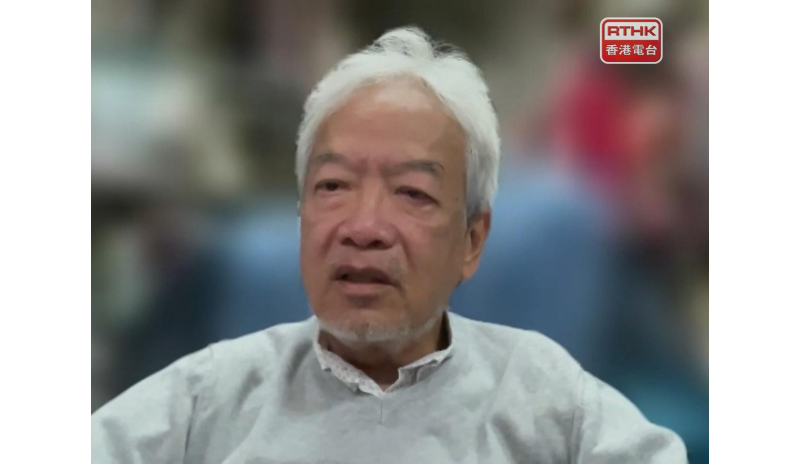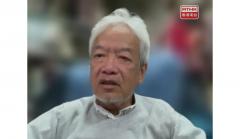簡介
Listen to #Hashtag Hong Kong every Sunday morning at 8.15
Focussing on issues affecting civil society, we'll hear from representatives of NGOs, associations, statutory bodies, and non-profit groups.
(Sundays 8.15am - 8.25am)
最新

Simon Wong, President of the Hong Kong Federation of Restaurants & Related Trades
As the government has announced the “ Waste Blueprint for HK 2035 “ to tackle the challenge of waste management as well as to build a circular economy and a sustainable green living environment, “Waste Reduction” is on the top priority list. The government has proposed a measure to regulate disposable plastic tableware in phases. The Amendment Bill for the first phase of regulation was thus passed in March 2023 and will be in force on April 22, 2024.
Under the Regulation, nine types of disposable plastic tableware would be introduced.
In the first phase under the Regulation, EPS tableware, plastic straws, stirrers, cutlery and plates are prohibited to sell to end-consumers and prohibited to provide by catering premises to customers for dine-in and takeaway services. The other disposable plastic tableware such as plates, cups food containers etc, will come into force in the second phase, but the date of implementation has yet to be determined.
There are a few issues which the catering industry is concerned upon the introduction of the ban on using plastic disposable materials. The catering industry at first worried if there were alternative products to substitute the plastic tableware, and whether those environmental substitutes would increase the operating cost.
Accordingly, if we look at the website of the Environmental Protection Department, we find that at the moment 64 companies are carrying 737 items which cover a wide range of non-plastic disposable tableware. Restaurant operators do have a lot of varieties to choose from which would suit their needs.
However, many restaurant operators are, at the moment, not eager to use non-plastic tableware as the government is giving a six-month grace period to the trade, such that operators will not be fined if they do not follow the regulation on and after April 22. On the other hand, it would give enough time for importers and wholesalers as well as retailers to consume or or deal with their inventories within the allowable period. This period would also offer more time for the catering industry to find more suitable products to suit their budget and needs.
In general, the cost of environmentally disposable products is about 20-30% more expensive than the plastic ones. Take the straws for example, a few cents increase seems not much for each straw, but it can translate to a substantial percentage increase when large quantities of straws are to be consumed. Since almost all non-plastic disposable products are imported, importers and wholesalers are not willing to take the risk of keeping too much stock in their warehouses at the moment. However, we believe that costs will come down when all restaurants have adopted the practice due to the larger quantity imports.
Another concern is the quality of the substitutes. Those non-plastic substitutes are commonly made of paper, bamboo, softwood, wood pulp and plant fibre materials. Though there are a lot of choices for each type of utensil, the quality of the product varies. Some customers have complained that the paper straws or spoons cannot sustain in higher temperatures nor cannot be put in liquid for too long as they will become soft. Of course, we can find better quality products in the market, but the cost will then be higher.
As the date for launching is drawing near, the catering industry has thought of ways to deal with the situation. Large restaurant groups, such as fast food chains, hotels and high-end restaurants have started using non-plastic utensils. Even though the cost, in general, is higher, they are willing to do so as it’s a social responsibility to compile with the ESG initiative. Some restaurants simply do not provide disposable utensils, but charge customers upon their request. Some restaurants or coffee shops have started to encourage customers to bring their utensils; in such cases, restaurants will save on the cost of providing the materials, while customers do not need to pay additional to the restaurants for getting non-plastic disposable tableware.
There are about 18,000 restaurant outlets in HK, and 98% of those are small and medium-sized enterprises. With the present gloomy economic environment, these SMEs would be very cautious about the increased expenses if environmental products are used. However, I would suggest to them to use more reusable products to lower their cost and not provide the disposable utensils to customers.
After all, the bill has passed, we, as an individual should do more for the environment. I also believe that education and publicity are vital means to pass the message to the public. The government should without any hesitation, launch more programs and publicities to educate the public how to deal with the change of living habits as well as to let people understand our environment is at risk if we do not act now.
I'd like to share this song with you all this morning, I want to dedicate "Somewhere over the Rainbow" by Judy Garland. Thank you for listening.
重溫
Erica Lee, Director, The Hong Kong Down Syndrome Association
Hello, I am Erica Lee, the director of the Hong Kong Down Syndrome Association, and thank you for tuning in today. It is truly a pleasure to have the opportunity to share with you on this significant occasion—World Down Syndrome Day 2024 on 21st March.
As we gather here to celebrate WDSD, it is essential to reflect on the journey of individuals with Down syndrome and the challenges they face in our society today. Down syndrome, a genetic condition caused by the triplication of the 21st chromosome, presents a variety of abilities and challenges for those affected. Despite significant progress in raising awareness and promoting inclusion, people with Down syndrome continue to encounter barriers to full participation in society.
Here in Hong Kong, based on the latest figures searched by the Hospital Authority, it is estimated that there are 2,900 – 3,000 persons with Down Syndrome in Hong Kong, by the end of 2021. In the case of the HKDSA serves around 1,000 members between 7 months to 63 years old. Only a few of the adult members are openly employed; the rest either work in sheltered workshops, are unemployed, or receive other kinds of day services.
The community has often underestimated the needs of minorities. In reality, not only do people with Down syndrome need support, but their families and caregivers also require help. Our mission is simple yet profound: to empower and uplift those affected by Down syndrome through integrated family support and vocational rehabilitation services, and comprehensive support networks from prenatal to newborn support.
However, despite our commitment, the road ahead remains challenging. One of the most pressing issues faced by individuals with Down syndrome is limited job opportunities. Given their potential and willingness to contribute, many still face discrimination in the workplace, often from their colleagues rather than their employers, to our surprise. Many people with Down syndrome struggle to find long-term employment opportunities that match their abilities. This disparity not only affects their financial independence but also their sense of dignity and self-confidence.
On the other hand, people with Down syndrome now live to the age of 60 or even 70s, which means that their parents are more often elderly causing the phenomenon of “Elderly doubletons families”. Although they have a longer life expectancy, it is common for them to experience “early ageing” starting at the age of early 30s, meaning that they experience certain conditions that are common to typically ageing adults, in the area of medical, physical and functionally. Early and doubled ageing will bring unexpected challenges for which adults with Down syndrome, their families and caregivers may not feel adequately prepared.
Now, you may wonder whether the resources allocated to support people with Down syndrome are adequate. The reality is that while progress has been made, there is still much work to be done. Greater support in childhood education, healthcare, and social services is needed to ensure that people with Down syndrome have access to the resources and support they need to thrive. Additionally, specialized teaching techniques and professionals must be trained to address the learning difficulties faced by individuals with Down syndrome, yet this remains a challenge due to limited resources in Hong Kong.
As we continue to advocate for the rights of people with Down syndrome, you may ask how we can make Hong Kong a better place for them. It starts with fostering a culture of inclusion and acceptance. We must challenge stereotypes and misconceptions about Down syndrome, promoting a society where diversity is celebrated, and everyone is valued for their unique contributions.
Advocating for policies and initiatives that promote equal opportunities is crucial. This includes efforts to increase employment opportunities, improve healthcare services, and enhance educational support for children and adults with Down syndrome. Most importantly, we must listen to their voices and involve them in decision-making processes that affect their lives. They need our support to build an inclusive and equal society for all, accepting who they are and welcoming them as part of the community.
End The Stereotypes - the theme of World Down Syndrome Day 2024, let us recommit ourselves to building a world where people with Down syndrome can live their lives to the fullest, free from discrimination and stereotypes. Regardless of ability, everyone has an opportunity to thrive and reach their full potential because everyone is unique and should be respected for who they are. I dedicate the song 'This is Me' (by Keala Settle) to all of you.
Thank you for your attention and support.


















